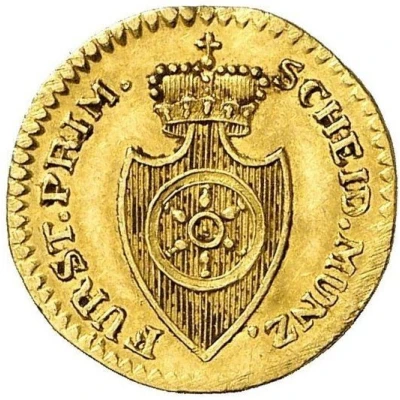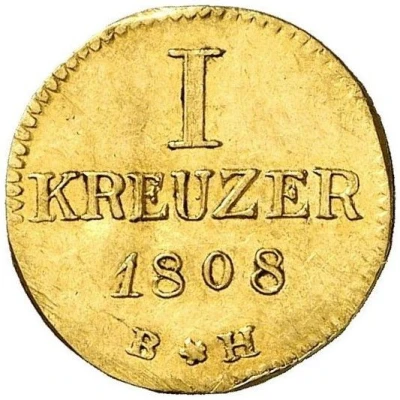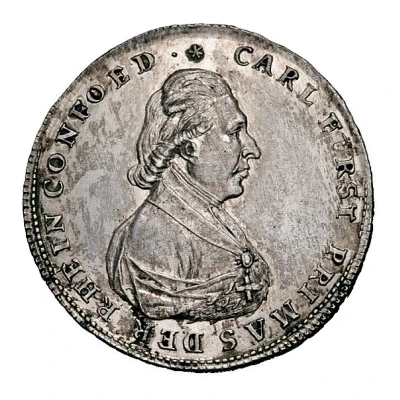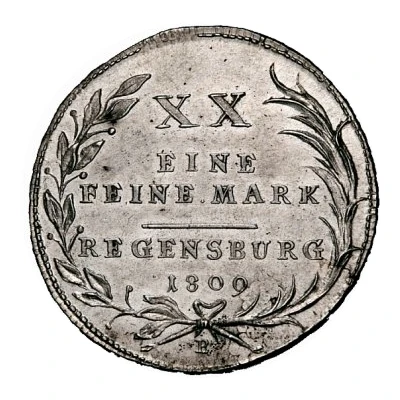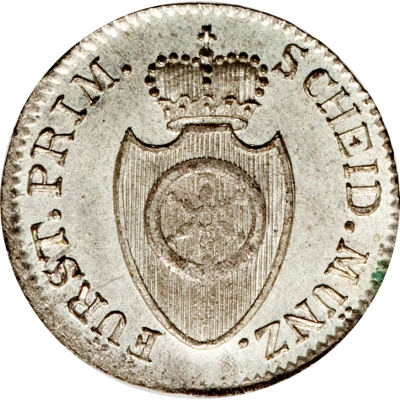
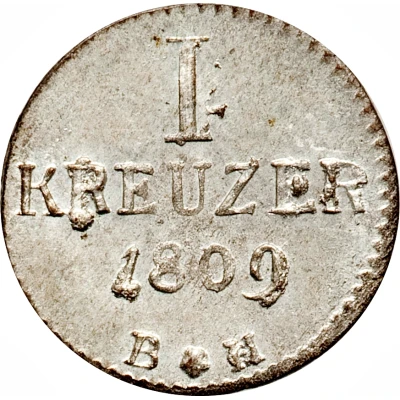

© Heritage Auctions
1 Kreuzer - Charles Theodore of Dalberg
| Silver | 0.55 g | 15 mm |
| Issuer | Confederation of the Rhine (German States) |
|---|---|
| Prince | Charles Theodore of Dalberg (1806-1813) |
| Type | Standard circulation coin |
| Years | 1808-1810 |
| Value | 1 Kreuzer (1⁄120) |
| Currency | Thaler (1806-1813) |
| Composition | Silver |
| Weight | 0.55 g |
| Diameter | 15 mm |
| Shape | Round |
| Technique | Milled |
| Demonetized | Yes |
| Updated | 2024-10-05 |
| Numista | N#47204 |
|---|---|
| Rarity index | 75% |
Reverse
Name and date.
Script: Latin
Lettering:
I
KREUZER
1809
B*H
Comment
The Confederation of the Rhine (German: Rheinbund; French: officially États confédérés du Rhin (Confederated States of the Rhine), but in practice Confédération du Rhin) was a confederation of client states of the First French Empire. It was formed initially from sixteen German states by Napoleon after he defeated Austria and Russia at the Battle of Austerlitz. The Treaty of Pressburg, in effect, led to the creation of the Confederation of the Rhine, which lasted from 1806 to 1813.The members of the confederation were German princes (Fürsten) formerly within the Holy Roman Empire. They were later joined by 19 others, altogether ruling a total of over 15 million subjects providing a significant strategic advantage to the French Empire on its eastern frontier by providing a separation between France and the two largest German states, Prussia and Austria (which also controlled substantial non-German lands to its north, east and south), to the east, which were not members of the Confederation of the Rhine.
Interesting fact
One interesting fact about the 1 Kreuzer coin from the Confederation of the Rhine (German States) is that it was minted during a time of great political and economic change in Europe. The Confederation of the Rhine was a short-lived alliance of German states that was formed in 1806, and it was dissolved just a few years later in 1813. During this time, many German states were under French occupation, and the coinage of the region was heavily influenced by French designs and standards. Despite this, the 1 Kreuzer coin managed to maintain its own unique design and identity, featuring an image of Charles Theodore of Dalberg, the Grand Duke of Baden, on one side and the coat of arms of the Confederation of the Rhine on the other. This coin is a rare and interesting example of the diverse and complex history of European coinage during this time period.
